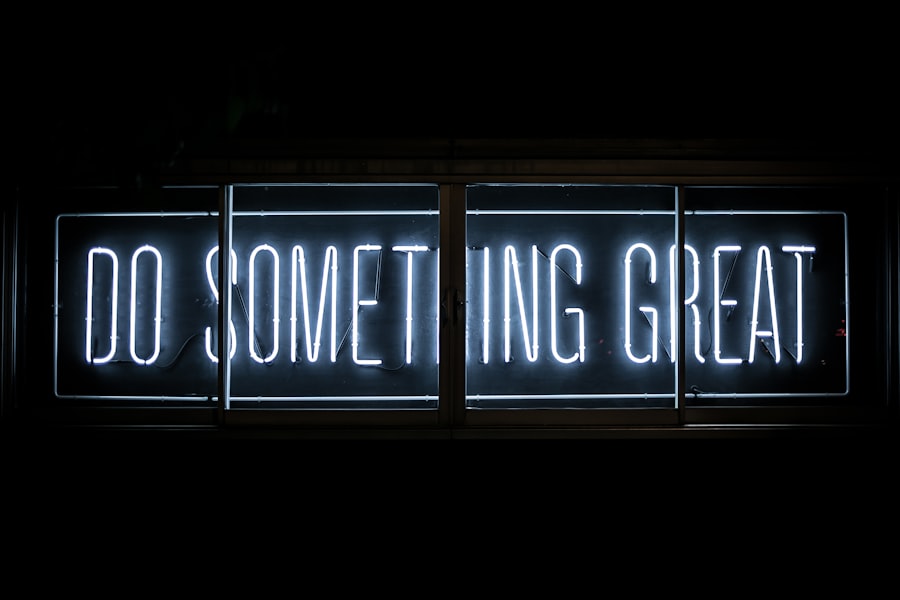
Work ethic is a multifaceted concept that encompasses an individual’s attitude toward work, their commitment to performing tasks diligently, and their overall approach to professional responsibilities. It is often characterized by traits such as reliability, dedication, and a strong sense of responsibility. A robust work ethic is not merely about the number of hours one puts in; it also involves the quality of work produced and the integrity with which tasks are approached.
Individuals with a strong work ethic tend to take pride in their work, consistently striving for excellence and demonstrating a willingness to go above and beyond what is required. Moreover, work ethic is influenced by various factors, including cultural background, personal values, and past experiences. For instance, individuals raised in environments that emphasize hard work and perseverance are likely to develop a strong work ethic.
Conversely, those who have not been exposed to such values may struggle to understand the importance of diligence and accountability in a professional setting. Understanding work ethic requires recognizing these influences and acknowledging that it is not a one-size-fits-all trait; rather, it is shaped by individual circumstances and societal expectations.
Key Takeaways
- Work ethic is the attitude and behavior towards work, including punctuality, reliability, and dedication.
- Soft skills such as communication, teamwork, and adaptability are crucial for success in the workplace.
- Trainability for soft skills involves being open to feedback, learning from mistakes, and seeking opportunities for improvement.
- Mastering work ethic requires setting clear goals, managing time effectively, and maintaining a positive attitude.
- Overcoming challenges in developing soft skills involves self-awareness, seeking mentorship, and practicing empathy and emotional intelligence.
Importance of Soft Skills in the Workplace
The Rise of Soft Skills in the Era of Automation
In an era where automation and artificial intelligence are transforming industries, soft skills have become a distinguishing factor that sets individuals apart in the job market.
Leaders who possess strong soft skills can inspire and motivate their teams, fostering an environment where creativity and innovation thrive.
The Impact of Soft Skills on Team Performance
For example, a manager who actively listens to team members and encourages open dialogue can cultivate trust and collaboration, leading to improved performance and job satisfaction. In contrast, a lack of soft skills can result in misunderstandings, conflicts, and decreased morale within teams, ultimately hindering organizational success.
The Bottom Line: Soft Skills Matter
In conclusion, soft skills are a vital component of professional success, and their importance cannot be overstated. As the job market continues to evolve, it is essential for individuals to develop and hone their soft skills to remain competitive and achieve long-term success.
Developing Trainability for Soft Skills

Trainability refers to an individual’s capacity to learn and adapt new skills effectively. When it comes to soft skills, developing trainability is crucial for personal and professional growth. Unlike hard skills that can often be learned through formal education or training programs, soft skills require ongoing practice and self-reflection.
Individuals must be open to feedback and willing to step outside their comfort zones to enhance their interpersonal abilities. This adaptability is essential in today’s dynamic work environments, where collaboration and communication are paramount. To foster trainability for soft skills, individuals can engage in various activities that promote self-awareness and emotional intelligence.
For instance, participating in workshops or training sessions focused on communication techniques can provide valuable insights into effective interaction styles. Additionally, seeking mentorship or coaching can offer personalized guidance on improving specific soft skills. By actively pursuing opportunities for growth and being receptive to constructive criticism, individuals can enhance their trainability and become more adept at navigating complex workplace dynamics.
Strategies for Mastering Work Ethic
| Strategies | Description |
|---|---|
| Setting Clear Goals | Define specific, achievable goals to stay focused and motivated. |
| Time Management | Organize tasks and prioritize them to maximize productivity. |
| Continuous Learning | Seek opportunities to improve skills and knowledge in your field. |
| Accountability | Take responsibility for your actions and commitments. |
| Work-Life Balance | Find a healthy equilibrium between work and personal life. |
Mastering work ethic involves cultivating habits and mindsets that promote diligence and accountability. One effective strategy is setting clear goals and establishing a structured routine. By defining specific objectives—whether short-term or long-term—individuals can create a roadmap for their professional journey.
This clarity not only enhances focus but also instills a sense of purpose in daily tasks. For example, breaking down larger projects into manageable milestones can help maintain motivation and ensure consistent progress. Another strategy for mastering work ethic is embracing a growth mindset.
This concept, popularized by psychologist Carol Dweck, emphasizes the belief that abilities can be developed through dedication and hard work. Individuals who adopt a growth mindset view challenges as opportunities for learning rather than obstacles to success. This perspective encourages resilience in the face of setbacks and fosters a proactive approach to problem-solving.
By cultivating a growth mindset, individuals can enhance their work ethic by remaining committed to continuous improvement and striving for excellence in all endeavors.
Overcoming Challenges in Developing Soft Skills
Developing soft skills is not without its challenges. One common obstacle is the discomfort associated with stepping outside one’s comfort zone. Many individuals may feel apprehensive about engaging in public speaking or initiating difficult conversations with colleagues.
This fear can hinder personal growth and limit opportunities for collaboration. To overcome this challenge, individuals can start by practicing in low-stakes environments, such as small group discussions or informal settings. Gradually increasing exposure to more challenging situations can build confidence and competence over time.
Unlike hard skills that can be measured through tests or certifications, soft skills are often evaluated based on personal perceptions and experiences. This ambiguity can lead to misunderstandings regarding one’s abilities or areas for improvement.
To address this issue, individuals should seek regular feedback from peers and supervisors. Constructive criticism provides valuable insights into how one’s soft skills are perceived by others and highlights specific areas for development. By actively seeking feedback and engaging in self-reflection, individuals can navigate the complexities of soft skill development more effectively.
The Role of Continuous Learning in Work Ethic

Continuous learning is integral to maintaining a strong work ethic in today’s fast-paced professional landscape. The rapid evolution of technology and industry standards necessitates that individuals remain adaptable and informed about emerging trends. Engaging in lifelong learning not only enhances one’s skill set but also demonstrates a commitment to personal growth and professional excellence.
For instance, attending industry conferences or enrolling in online courses can provide valuable knowledge that contributes to both individual performance and organizational success. Moreover, continuous learning fosters a culture of curiosity and innovation within teams. When individuals prioritize learning, they are more likely to share insights and collaborate on new ideas, driving collective progress.
This collaborative spirit is essential for organizations seeking to remain competitive in an ever-changing marketplace. By embracing continuous learning as a core value, individuals reinforce their work ethic while contributing positively to their workplace culture.
Incorporating Soft Skills into Professional Development
Incorporating soft skills into professional development plans is essential for holistic career growth. Organizations increasingly recognize the importance of nurturing these skills among employees as part of their training initiatives. For instance, companies may offer workshops focused on communication strategies or conflict resolution techniques as part of their professional development programs.
By integrating soft skills training into existing frameworks, organizations equip employees with the tools necessary for effective collaboration and leadership. On an individual level, professionals can take proactive steps to incorporate soft skills into their development plans by identifying specific areas for improvement. Setting measurable goals related to soft skill enhancement—such as improving public speaking abilities or enhancing emotional intelligence—can provide direction for personal growth efforts.
Additionally, seeking out mentorship opportunities or participating in peer feedback sessions can facilitate skill development while fostering a supportive network for ongoing learning.
The Impact of Work Ethic on Career Advancement
A strong work ethic significantly influences career advancement opportunities within organizations. Employers often prioritize candidates who demonstrate reliability, dedication, and a commitment to excellence when considering promotions or leadership roles. Individuals with a solid work ethic are more likely to be entrusted with challenging projects or responsibilities due to their proven track record of delivering results consistently.
This trust not only enhances their visibility within the organization but also positions them as potential leaders. Furthermore, a robust work ethic contributes to building positive relationships with colleagues and supervisors alike. When individuals consistently demonstrate accountability and professionalism, they earn respect from peers and superiors, which can lead to valuable networking opportunities.
These connections often play a crucial role in career advancement as they may result in recommendations or referrals for new positions or projects. Ultimately, cultivating a strong work ethic serves as a foundation for long-term career success by establishing credibility and fostering meaningful professional relationships within the workplace.
If you’re interested in enhancing your understanding of work ethic and its importance in the workplace, you might find the article “Soft Skills at Work: Work Ethic: Trainability” particularly insightful. For further exploration of soft skills and how they contribute to professional success, consider reading a related article that delves into the broader aspects of teamwork and collaboration. You can find this article at Soft Skills: Teamwork. This piece complements the discussion by highlighting how effective teamwork skills intersect with a strong work ethic to produce better outcomes in any work environment.
FAQs
What is work ethic?
Work ethic refers to a set of values and beliefs that an individual holds regarding their work and the effort they put into it. It includes qualities such as reliability, punctuality, dedication, and a strong sense of responsibility towards one’s job.
What is trainability in the context of work ethic?
Trainability in the context of work ethic refers to an individual’s willingness and ability to learn new skills, adapt to changes, and improve their performance in the workplace. It involves being open to feedback, being proactive in seeking opportunities for growth, and being able to quickly grasp and apply new information.
Why is trainability an important soft skill in the workplace?
Trainability is an important soft skill in the workplace because it demonstrates an individual’s ability to continuously develop and improve their skills and knowledge. Employers value employees who are adaptable and willing to learn, as it contributes to the overall productivity and success of the organization.
How can an individual demonstrate trainability in the workplace?
An individual can demonstrate trainability in the workplace by being open to feedback, actively seeking opportunities for learning and development, being flexible in adapting to changes, and showing a willingness to take on new challenges and responsibilities. Additionally, being proactive in acquiring new skills and knowledge relevant to their role can also demonstrate trainability.





